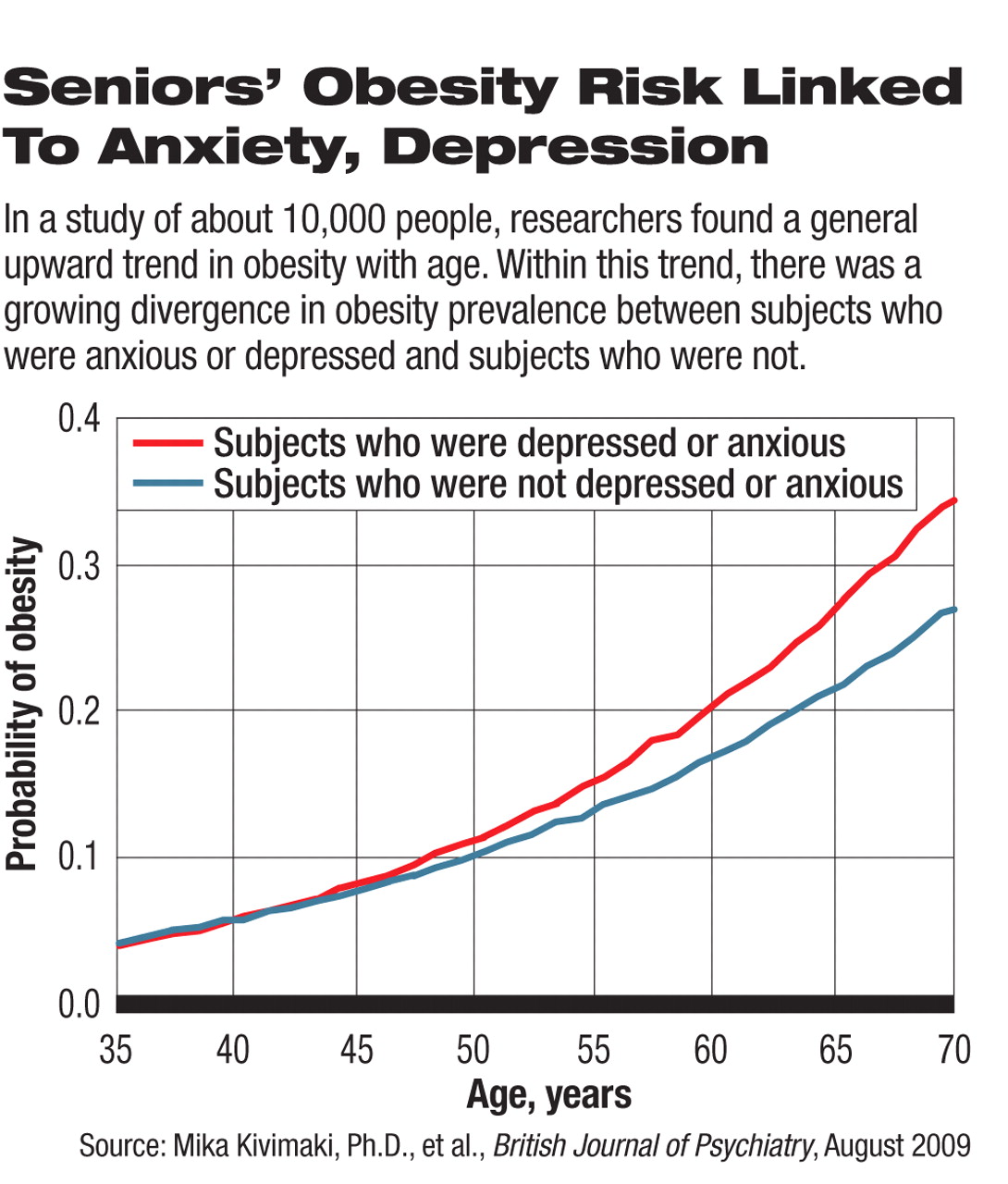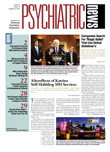Older people are more at risk for obesity than younger people are, but especially if they are anxious or depressed. So suggests a study published in the August British Journal of Psychiatry that was headed by Mika Kivimaki, Ph.D., an epidemiologist at University College London.
Between 1985 and 1988, some 10,000 civil servants working in London were enrolled in the study. They were 35 to 55 years old at this time.
Both at the time of enrollment and at three other points during the subsequent two decades, they were screened for anxiety and depression with the General Health Questionnaire (GHQ). The GHQ is an instrument that shows high reliability and that has been validated against standardized clinical interviews. It contains 30 questions about various symptoms of anxiety or depression. If a responder answers yes to any of the questions, he or she receives a score of 1. A score of 5 or more indicates that the responder is anxious or depressed.
Also, at the four time points when subjects were screened with the GHQ, their height and weight were measured. Finally, the researchers looked to see whether subjects' vulnerability to obesity changed with age and whether GHQ-defined anxiety or depression influenced such vulnerability.
Subjects were more at risk of obesity as they aged, the researchers found. And within this general trend, there was a growing divergence in obesity prevalence between subjects who had GHQ-defined anxiety or depression and those who did not. Those who were anxious or depressed were increasingly likely to be obese. For example, at age 40, only 6 percent of subjects who were anxious or depressed were obese. That's comparable to the rate in subjects who were not anxious or depressed. But by age 70, of the subjects who were anxious or depressed, 35 percent were obese, while 27 percent were not—a significant difference. These results remained solid even when some possibly confounding factors, such as gender, ethnicity, socioeconomic status, and use of psychotropic drugs were considered.
Thus, as people age, they seem to be increasingly at risk of obesity—even more so if they are anxious or depressed. However, what is not clear is whether anxiety or depression helps set the stage for obesity, whether obesity helps set the stage for anxiety or depression, or whether a common variable, such as pain or disability, can explain the link.
In any event, the findings from this study could have some widespread implications since seniors are the fastest-growing age group in the world, the researchers noted.
The study was funded by the British Medical Research Council, the U.S. National Institutes of Health, and other sources.

